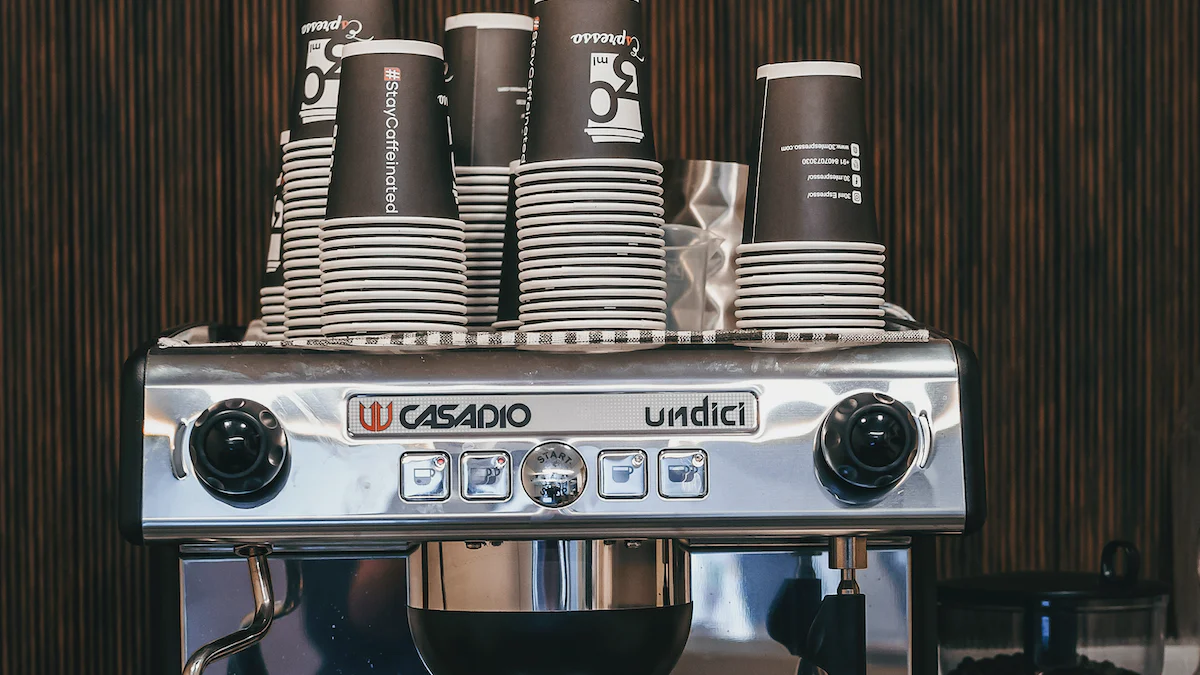FTC/ASA Disclosure: Some links in this post are affiliate links. At no additional cost to you, I will earn commission if you purchase via my links. Thank you in advance for your support! 🙏 It means a lot to me. ❤️
Coffee has become an integral part of many people’s lives. Whether it’s the morning cup of joe that kickstarts our day or the afternoon pick-me-up, coffee has become a staple beverage for millions around the world. Its popularity can be traced back centuries, with its origins dating back to the 9th century in Ethiopia. From there, it spread to the Arab world and eventually made its way to Europe and the Americas.
Today, coffee is enjoyed in various forms, from espresso shots to lattes and cappuccinos. It has become a social beverage, with coffee shops serving as meeting places for friends and colleagues. Coffee has also become a ritualistic part of our daily routine, providing comfort and a sense of familiarity.
The Shelf Life of Coffee: What Does It Mean?
The shelf life of a product refers to the length of time it can be stored before it starts to deteriorate in quality or become unsafe to consume. For coffee, this means the time it takes for the beans or grounds to lose their flavor and freshness. The shelf life of coffee can vary depending on various factors, including how it is stored and the type of coffee.
Understanding the Factors That Affect the Shelf Life of Coffee
Several factors can affect the shelf life of coffee, including oxygen exposure, moisture, temperature, and light exposure.
Oxygen exposure is one of the main culprits when it comes to coffee going stale. Oxygen can cause oxidation, which leads to a loss of flavor and aroma. To minimize oxygen exposure, it is important to store coffee in airtight containers.
Moisture is another enemy of coffee freshness. Moisture can cause the beans or grounds to become stale and develop mold. It is crucial to keep coffee away from humid environments and store it in a dry place.
Temperature also plays a role in the shelf life of coffee. Extreme temperatures, whether hot or cold, can affect the flavor and quality of the coffee. It is best to store coffee in a cool and stable environment.
Lastly, light exposure can also impact the shelf life of coffee. UV rays from sunlight can degrade the flavor compounds in coffee, leading to a loss of taste and aroma. It is advisable to store coffee in a dark place, away from direct sunlight.
How to Store Coffee Properly to Extend Its Shelf Life
To extend the shelf life of coffee and keep it fresh for longer, there are several storage methods that can be employed.
Firstly, it is important to store coffee in airtight containers. This helps to minimize oxygen exposure and prevent the beans or grounds from going stale. Airtight containers can be glass jars with rubber seals or specially designed coffee storage canisters.
Secondly, coffee should be stored in a cool, dry, and dark place. The ideal temperature for storing coffee is between 50-70 degrees Fahrenheit (10-21 degrees Celsius). It is best to avoid storing coffee in the refrigerator or freezer as the moisture and temperature fluctuations can negatively impact the flavor.
However, if you do choose to freeze your coffee, it is important to do so properly. Coffee should be stored in an airtight container and divided into smaller portions to minimize exposure to air when thawing. When ready to use, allow the frozen coffee to come to room temperature before brewing.
Signs That Your Coffee Has Gone Bad: How to Spot Them
It is important to be able to identify when your coffee has gone bad so that you can avoid consuming stale or spoiled coffee.
One of the most noticeable signs that your coffee has gone bad is a rancid smell. If your coffee smells off or has a sour odor, it is likely past its prime and should not be consumed.
Another sign of spoiled coffee is the growth of mold. If you notice any mold or discoloration on your coffee beans or grounds, it is best to discard them immediately.
Lastly, the taste of stale coffee is a clear indicator that it has gone bad. If your coffee tastes flat, dull, or lacks the usual flavor and aroma, it is likely past its expiration date.
The Risks of Consuming Expired Coffee: Is It Safe?
While consuming expired coffee may not pose serious health risks, it is generally not recommended. Expired coffee can taste unpleasant and lack the desired flavor and aroma. Additionally, consuming moldy coffee can lead to stomach discomfort and other digestive issues.
It is important to note that while expired coffee may not be harmful, it is also not beneficial. The quality of taste and enjoyment that comes from a fresh cup of coffee cannot be replicated with expired or stale coffee.
How to Dispose of Expired Coffee Properly
When disposing of expired coffee, it is important to do so in an environmentally friendly manner.
One option is to compost the coffee grounds. Coffee grounds are rich in nitrogen and can be added to compost piles or used as a natural fertilizer for plants.
Another option is to recycle the packaging. Many coffee bags and containers are recyclable, so be sure to check the recycling guidelines in your area and dispose of them accordingly.
The Benefits of Freshly Roasted Coffee: Why It’s Worth the Effort
While proper storage can help extend the shelf life of coffee, there are undeniable benefits to enjoying freshly roasted coffee.
Freshly roasted coffee offers a superior taste experience. The flavors and aromas are more pronounced, resulting in a more enjoyable cup of coffee. The nuances and complexities of different coffee beans can be fully appreciated when they are freshly roasted.
In addition to better taste, freshly roasted coffee also tends to have a higher caffeine content. As coffee ages, the caffeine content naturally decreases. By opting for freshly roasted coffee, you can ensure that you are getting the maximum caffeine kick.
Supporting local businesses is another reason to choose freshly roasted coffee. Many small-scale coffee roasters take pride in sourcing high-quality beans and roasting them to perfection. By purchasing their products, you are supporting their craft and contributing to the local economy.
How to Choose Coffee with a Longer Shelf Life: Tips and Tricks
If you prefer to have coffee with a longer shelf life, there are certain factors to consider when choosing your beans or grounds.
The roast level of the coffee can affect its shelf life. Lighter roasts tend to have a longer shelf life compared to darker roasts. This is because darker roasts have been exposed to higher temperatures for longer periods, which can accelerate the oxidation process.
Packaging also plays a role in the shelf life of coffee. Look for coffee that is packaged in airtight bags or containers to minimize oxygen exposure. Some brands also offer vacuum-sealed packaging, which further extends the shelf life.
Lastly, consider the reputation of the brand. Established and reputable coffee brands often have strict quality control measures in place, ensuring that their products have a longer shelf life.
Enjoying Your Morning Cuppa with Peace of Mind
In conclusion, proper storage and understanding the factors that affect the shelf life of coffee are crucial for enjoying a fresh and flavorful cup of joe. By minimizing oxygen exposure, moisture, temperature fluctuations, and light exposure, you can extend the shelf life of your coffee and avoid consuming stale or spoiled beans or grounds.
While expired coffee may not be harmful, it is best to avoid consuming it as it can taste unpleasant and lack the desired flavor and aroma. Instead, opt for freshly roasted coffee for a superior taste experience and higher caffeine content. By choosing coffee with a longer shelf life, such as lighter roasts and well-packaged products, you can enjoy your morning cuppa with peace of mind. So, take the time to store your coffee properly and savor every sip of that freshly brewed goodness.
If you’re wondering about the shelf life of coffee, you might also be interested in learning how to store coffee beans to maintain their freshness. Proper storage is essential for preserving the flavor and aroma of your favorite brew. Check out this informative article on BrewHilda.com that provides valuable tips and techniques for storing coffee beans: How to Store Coffee Beans to Maintain Freshness.
Brewhilda.com is a participant in the Amazon Services LLC Associates Program, an affiliate advertising program designed to provide a means for sites to earn advertising fees by advertising and linking to Amazon.com.










